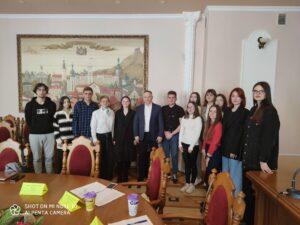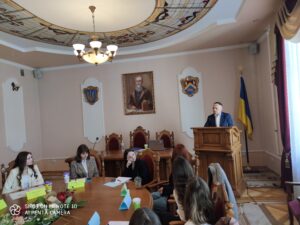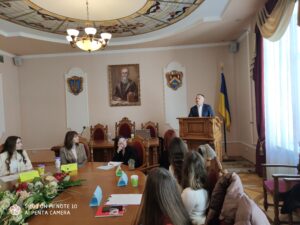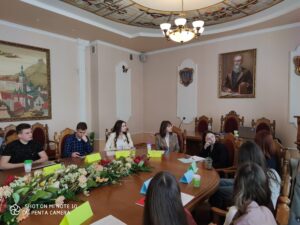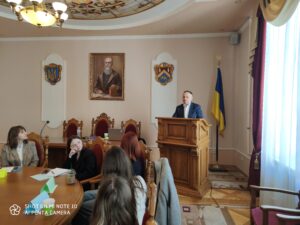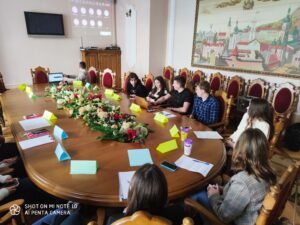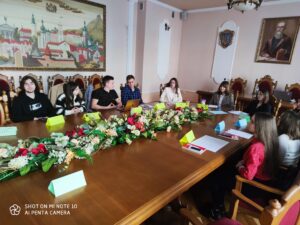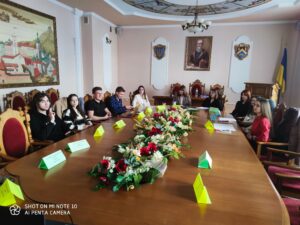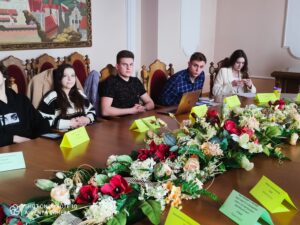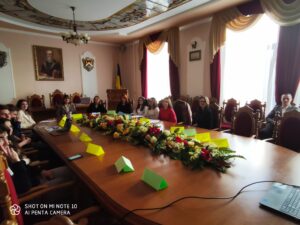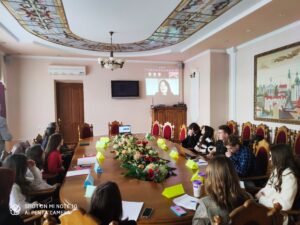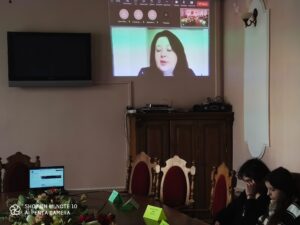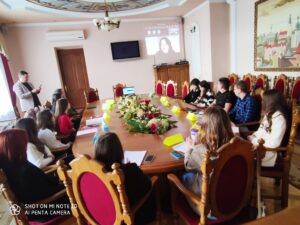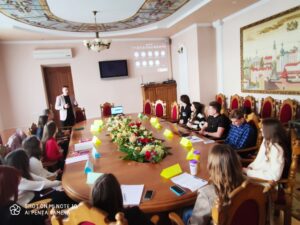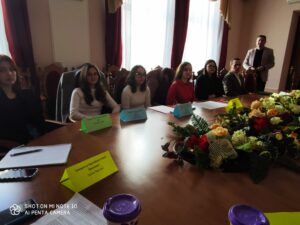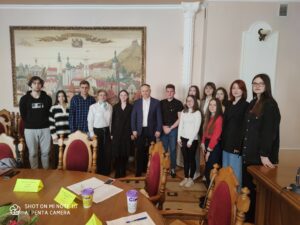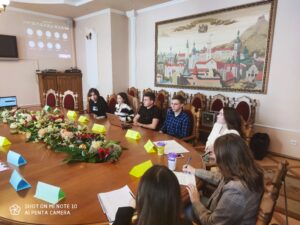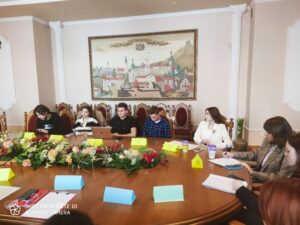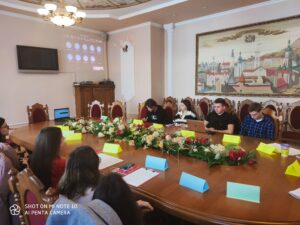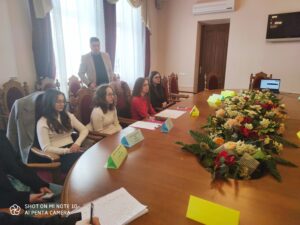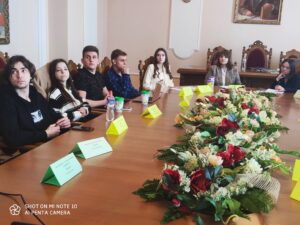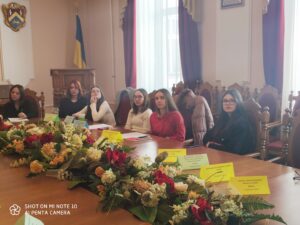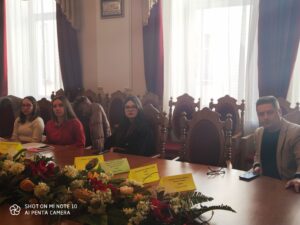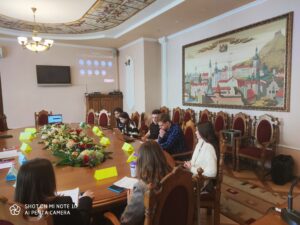OPEN SIMULATION GAME “SIMULATION OF THE MEETING OF THE EUROPEAN COMMISSION”
On April 12 and 21, 2023, a joint public event of the Department of Economics and Public Administration, the Department of European and Regional Studies, and the Department of European Law was held in two stages
OPEN SIMULATION GAME “SIMULATION OF THE MEETING OF THE EUROPEAN COMMISSION”
As part of the implementation of the project “EU Common Policies: Alignment Strategies for Ukraine” / JMM “European Union Common Policies – Alignment Strategies for Ukraine” (EUCPASU). 101047504 — EUCPASU -— ERASMUS-JMO-2021-HEI-TCH-RSCH (AGREEMENT NUMBER – 101047504 – EUCPASU).
On April 12, at the first meeting, students from the Faculty of International Relations told students from the Faculty of Finance and Business Management about the specifics of holding meetings of the European Commission, in particular:
- What is the European Commission;
- Regulations of the Commission;
- Powers and main areas of activity of the Commission;
- Composition and structure of the Commission;
- Specifics and conduct of Commission meetings.
This information became useful for students of the Faculty of Finance and Business Management to prepare their reports (in the role of European Commissioners).
On April 21, 2023, students of the Faculty of Finance and Business Management, in cooperation with students of the Faculty of International Relations, took part in the simulation game “Model of the European Commission”.
In the framework of the game, students had the opportunity to take on the role of real members, from the president to European commissioners from various fields!
Project coordinator Oksana Kraevska, Head of the Department of Economics and Public Administration Halyna Kaplenko, Head of the Western Ukrainian Research Center for European Studies Oksana Golovko-Gavrysheva, and member of the project team Vasyl Zelenko made a welcome speech, who emphasized the relevance of the discussed issues, as well as what is on the way European integration of Ukraine for young specialists, such managerial skills can become extremely useful already in the near future. At the current stage of Russia’s full-scale invasion of Ukraine, the European partners of our country joined in support in various directions, one of which was the introduction of sanctions packages against the aggressor. The speakers pointed out that students’ understanding of such mechanisms, as well as gaining in-depth knowledge about the activities of European institutions, is another brick for the formation of a new Ukrainian state – in the future, a member of the European Union.
Andriy Stasyshyn, Dean of the Faculty of Finance and Business Management, congratulated the participants of the event and emphasized that in today’s unstable Ukraine, Ukraine has found its support on the European continent in the form of close cooperation with the European Union, in particular through the signing of the Association Agreement, and now through the submission of an application for EU membership . And the discussion of the support of the European Union through the introduction of sanctions against Russia in concrete steps confirms such cooperation.
The organizers of the Model tried to reproduce the atmosphere of the meeting of the European Commission, following the relevant regulations of the Commission’s work (C(2000) 3614). In particular, the following issues were discussed on the agenda of the European Commission:
- 1. Reports of the European Commissioners on:✔ latest news in their respective fields;
✔ discussion of aid to Ukraine in wartime conditions;
✔ discussion of the effectiveness of already introduced sanctions against the aggressor country – Russia, as well as regarding the development of the next sanctions package.
- Discussion of the problem of demonstrations by farmers of EU countries – Ukraine’s neighbors and the consequences of limiting the export of Ukrainian agricultural products to the EU.
- Vote on providing financial assistance in the amount of 100 million euros to European farmers in the form of compensation for “damages” due to the export of Ukrainian grain.
- Voting on introducing the discussed proposals of the commissioners regarding the effectiveness of current sanctions and the introduction of new ones before the next package of sanctions against the aggressor country.
Therefore, thanks to such a simulation game, students had a chance to familiarize themselves with the process of holding a meeting of the European Commission and feel like real members of it, which provided all participants with great impressions and an unforgettable experience!
